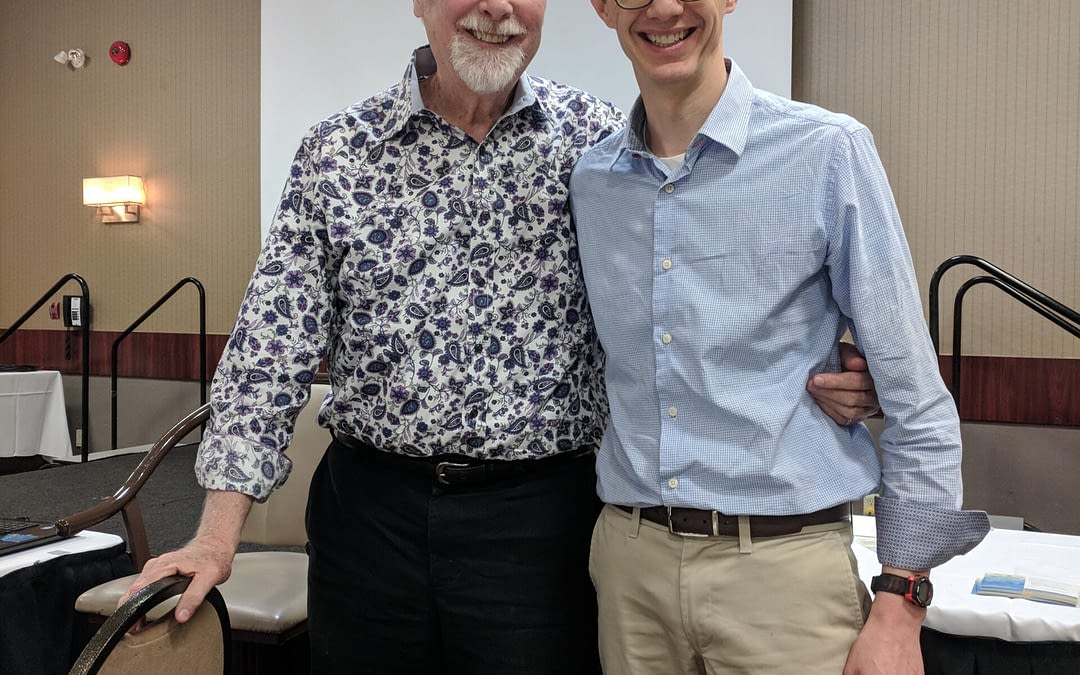Fabrice and David interview Mike Christensen, a prominent Canadian TEAM-CBT therapist and trainer, on the overlap, or conflict, between psychotherapy and religious beliefs.
Hi everybody!
Many listeners have sent us emails with questions about the connections between TEAM-CBT and their religious beliefs. Is there an inherent conflict? Or a synergistic compatibility?
I couldn’t think of a more eminently qualified colleague to help address those questions than my dear friend and esteemed colleague, Mike Christensen. Mike is a prominent Canadian TEAM-CBT therapist and trainer. Mike served as a Christian minister before his discovery of TEAM-CBT, which affected him in a profound way, on a personal, spiritual and professional level as well.
This dynamic interview covers the integration of TEAM-CBT with Christianity as well as Judaism, Buddhism, Hinduism, the Muslim faith, and more. Mike, Fabrice and I describe many areas of overlap, as well as some potential conflicts, between the teachings and methods of TEAM-CBT and religious beliefs. Mike and I suggest that religion and TEAM-CBT are, in fact, attempting to do the exact same things using slightly different language and symbolism. We strongly agree that at the moment of recovery, a person’s religious beliefs are nearly always strengthened and deepened, and never challenged or belittled.
Mike, Fabrice and I also discuss topics like religious scrupulosity, religious obsessions, cognitive distortions (John 8:32: “The truth will set you free”), and the so-called “dark night of the soul” described by Christian and Buddhist mystics. We also talk about the spiritual and psychological aspects of enlightenment (e.g. salvation), Should Statements, the Disarming Technique, forgiveness, repentance, the death of the ego, pride vs. humility, and more.
If you have an interest in religious or philosophical topics, you will love this podcast! You might also enjoy the podcasts with Marilyn on what to do when you’ve lost your belief in God and find yourself in darkness and intense suffering!
Mike Christensen treats individuals throughout Canada via teletherapy and also offers online training for mental health professionals throughout the world. If you have a question for Mike, or wish to contact him, you can find him at www.FeelingGoodInstitute.com. Here’s his link for treatment, and here’s his link for online training.
Additional Resources
CBT and Christianity: Strategies and Resources for Reconciling Faith in Therapy.
by Michael L. Free
Dr. Fabrice Nye currently practices in Redwood City, California and treats individuals throughout the world via teletherapy. You can reach him at fabrice@life.net.
You can reach Dr. Burns at David@feelinggood.com.
David
Dr. Fabrice Nye currently practices in Redwood City, California and works with individuals throughout the world via teletherapy (although not across U.S. state lines). You can reach him at fabrice@life.net. You can reach Dr. Burns at david@feelinggood.com. If you like our jingle music and would like to support the composer Brett Van Donsel, you may download it here.
* * *
Upcoming Workshop Schedule
The following schedule will evolve as I add new workshops or update details. Check back here at times to stay informed.
TREAT ANXIETY FAST–
Powerful, Fast-Acting, Drug-Free Techniques
to Defeat Anxiety & Worry
a 2-day workshop by David D. Burns, MD
November 29 and 30, 2018: San Francisco, CA
(in person only)
and
December 3 and 4, 2018: Portland, Oregon
(in person and live streaming)
PESI is proud to offer an exciting workshop by David Burns, M.D., a pioneer in the development of cognitive behavior therapy (CBT). Achieve rapid and lasting recovery with all your anxious clients, just as Dr. Burns has done in over 35,000 therapy sessions with severely troubled clients. Become skilled at treating every type of anxiety without drugs.
In this unique 2-day certificate course you’ll master more than 20 treatment techniques to help your clients eliminate the symptoms of anxiety quickly – even your most challenging, resistant clients.
Dr. Burns will illustrate concrete strategies that provide rapid, complete recovery and lasting change for your patients. You’ll learn…
- How to integrate four powerful treatment models to eliminate symptoms.
- How to enhance your client’s engagement in therapy.
- How to develop a treatment plan that specifically targets each client’s unique problems and needs.
- …and so much more!
David will provide you with guided instruction and share powerful video sessions that capture the actual moment of recovery. You will take away practical strategies to use immediately with any anxious client. Leave this certificate course armed with tools you can use in your very next session!
Don’t miss this opportunity to learn from one of America’s most highly acclaimed teachers!
Sponsored by PESI
To register, or for more information, call: 800-844-8260
* * *
Brief Therapy Conference, December 6 – 9, Burlingame, California
Sponsored by the Milton Erikson Foundation
I will be giving a Keynote Address on
Overcoming Therapeutic Resistance
on Sunday, December 9, 2018, from 2:30 – 3:30 PM
plus a two-hour workshop on Friday, December 7, 2018 from 10:45 AM – 12:45, with Dr. Jill Levitt on
Healing Yourself: A Live Demonstration of TEAM-CBT
plus two other presentations at this fantastic event.
I’ll also be doing a “Great Conversations” dialogue with Dr. Jeffrey Zeig on the treatment of addictions and the incredibly important concept of non-linear recovery.


